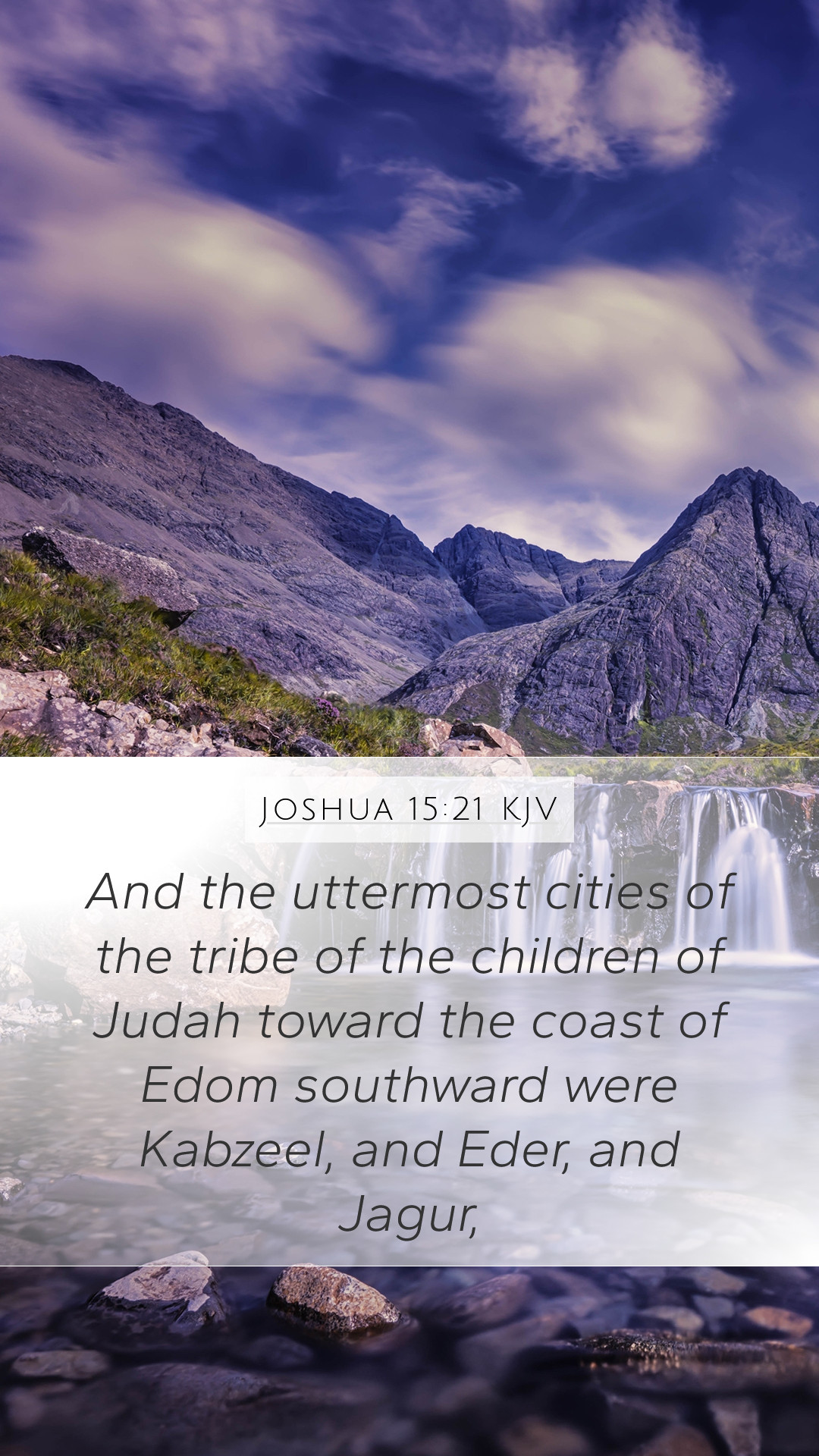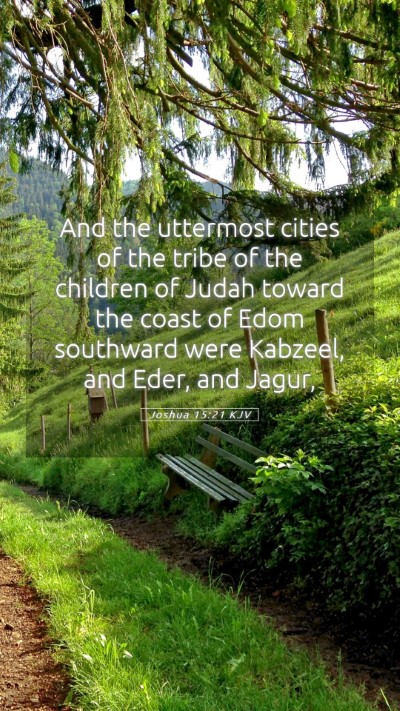Understanding Joshua 15:21
Joshua 15:21 states:
"And the cities of the plain were Eshtaol, and Zorah, and Ashnah."
This verse carries significance in understanding the geographical and tribal allocations within the land of Canaan. It belongs to a larger narrative detailing the division of land among the tribes of Israel after their conquest of the Promised Land. Below, we will explore the meaning of this verse using insights from esteemed public domain commentaries.
Bible Verse Meanings and Context
The first insight we derive comes from Matthew Henry's Commentary. He notes that the cities listed are primarily allotted to the tribe of Judah, representing their heritage and God’s fulfillment of promises made to Abraham, Isaac, and Jacob. The significance of these cities is not just in their names but in what they represent: a culture, a history, and divine promise.
Albert Barnes expands this view by discussing the ancient significance of each city. Eshtaol is noted for its reference in other biblical contexts (Judges 13:25) as a place where the Spirit of the Lord moved, while Zorah is recognized as the birthplace of Samson (Judges 13:2). This suggests a pattern that these cities serve as critical locations for future biblical narratives and God's unfolding plan.
Adam Clarke emphasizes that this verse contributes to the overall study of territorial inheritance, which was significant in understanding Israel's cultural and spiritual identity. The detailed listing of cities highlights the importance of land in biblical theology, serving as a reflection of God's promise and covenant with the nation of Israel.
Key Themes and Interpretations
The layering of meanings includes aspects of Bible verse interpretations, biblical exegesis, and how these ancient names resonate in contemporary Bible study insights. Here are some key themes derived from Joshua 15:21:
- Divine Inheritance: The towns signify the fulfillment of God's promise to Israel about their possession of the land.
- Cultural Significance: Each city has particular historical relevance that ties back into the larger biblical narrative, affecting future generations.
- Geographical Importance: Knowing the locations in the context of biblical accounts aids in understanding broader themes in Scripture.
Practical Application and Modern Relevance
For today’s reader, the verse invites reflection on the application of Bible verses to daily life. The cities represent not only historical places but lifelong lessons in faith, promise, and the importance of heritage. They encourage contemporary believers to consider what 'inheritance' means in their lives today:
- Personal Legacy: Just as the Israelites inherited the land, what inheritances do we seek for our families and communities?
- Spiritual Heritage: How do we view our spiritual heritage and commitment to faith in daily decisions?
- Community and Belonging: The sense of belonging to a community of faith parallels Judah's association with these cities, prompting questions about community ties today.
Bible Cross References
This verse resonates with multiple other scripture passages:
- Judges 13:2 - The birthplace of Samson.
- 1 Chronicles 4:3 - The lineages of the tribe of Judah.
- Numbers 26:20 - Importance of the tribe of Judah in biblical prophecy.
These references enrich the understanding of this verse by situating it in a broader context of biblical history and narrative.
Conclusion
In summary, Joshua 15:21 presents vital information not only about specific locations allotted to the tribe of Judah but also serves as a reminder of God’s consistent fulfillment of His promises. The interplay of the cities’ names in their biblical accounts enriches these urban centers with lasting importance within the biblical text, contributing to both Bible study resources and personal faith journeys. Through Bible verse commentary and detailed scripture analysis, readers can glean deeper understanding and practical application for their own lives.


